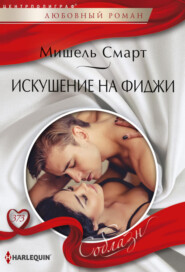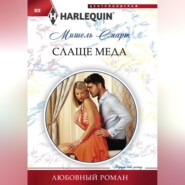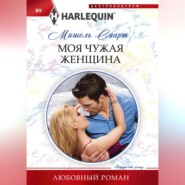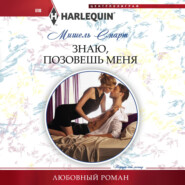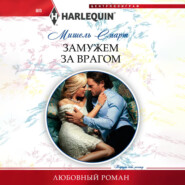По всем вопросам обращайтесь на: info@litportal.ru
(©) 2003-2025.
✖
Buying His Bride Of Convenience
Автор
Год написания книги
2019
Настройки чтения
Размер шрифта
Высота строк
Поля
Eva had been saddened by this loss. She’d only met Pieta a few times but he’d been greatly respected by everyone in the aid community.
She and the other staff at the Blue Train Aid Agency had been overjoyed to learn his family wished to proceed with the hospital. The people of the island badly needed more medical facilities. They and the other charities and agencies did the best they could but it wasn’t enough. It could never be enough.
Pieta’s sister, Francesca, had become the new driving force for the project. Eva had liked her very much and admired the younger woman’s determination and focus. She’d expected to like and admire his brother too. Like Pieta, Daniele was a world-famous name, but his reputation had been built through his architecture and construction company, which had won more design awards than any other in the past five years.
She’d found nothing to like or admire about him. Although famed for his good humour and searing intellect, she’d found him arrogant and entitled. She’d seen the wrinkle of distaste on his strong—now busted—nose when he’d come to the camp to collect her for their one evening out together, a date she’d only agreed to because he’d assured her it wasn’t a date and that he’d just wanted to get her input on the kind of hospital he should be building as she was something of an expert on the country and its people. He’d flown her to his exclusive seven-star hotel on the neighbouring paradise island of Aguadilla, spent five minutes asking her pertinent questions, then the rest of the evening drinking heavily, asking impertinent questions and shamelessly flirting with her.
She would go as far as to say his only redeeming features were his looks and physique and the size of his bank account. Seeing as she was immune to men and cared nothing for money, those redeeming features were wasted on her.
The look on his face when she’d coldly turned down his offer of a trip to his suite for a ‘nightcap’ had been priceless. She had a feeling Daniele Pellegrini was not used to the word ‘no’ being uttered to him by members of the opposite sex.
He’d had his driver take her back to the airfield without a word of goodbye. That was the last she’d seen of him until she’d walked into the medical tent ten minutes ago and found him already there, waiting for her. It was immediately obvious that someone had punched him in the face. She wondered who it was and if it was possible to track them down and buy them a drink.
‘I’m not a nurse,’ she’d said when he’d told her he needed her to fix it.
He’d shrugged his broad shoulders but without the ready smile she remembered from their ‘date’. ‘I only need you to stop the bleeding. I’m sure you’ve seen it done enough times that you have a basic idea of what needs to be done.’
She had more than a basic idea. Principally employed as a co-ordinator and translator, she, like most of the other non-medical staff, had often stepped in to help the medical team when needed. That didn’t mean she felt confident in patching up a broken nose, especially when the nose belonged to an arrogant billionaire whose suit likely cost more than the average annual salary of the Caballerons lucky enough to have a job.
‘I’ll get one of the nurses or—’
‘No, they’re busy,’ he’d cut in. ‘Stem the bleeding and I’ll be out of here.’
She’d been about to argue that she was busy too but there had been something in his demeanour that had made her pause. Now, as she gently placed the second strip on his nose, she thought him like a tightly coiled spring. She pitied whoever would be on the receiving end of the explosion that was sure to come when the coil sprang free.
Taking the third and last strip, she couldn’t help but notice how glossy his dark hair was. If she didn’t know it was a genetic blessing, having the same shine as the rest of the family members she’d met, she’d think he took a personal hairdresser with him everywhere he travelled. And a personal dresser.
If she was feeling charitable she could understand his distaste for the camp. Daniele lived in luxury. Here there was only dirt and squalor that everyone’s best efforts at cleaning barely made a dent in. Being in front of him like this made her acutely aware of the grubbiness of her jeans and T-shirt and the messy ponytail she’d thrown her hair back into.
Who cared about her appearance? she asked herself grimly. This was a refugee camp. All the staff were prepared to turn their hand to anything that needed doing. Dressing for a fashion shoot was not only wholly inappropriate but wholly impractical.
It was only this hateful man who made her feel grubby and inferior.
‘Keep still,’ she reminded him when his foot started its agitated tapping again. ‘Almost done. I’m just going to clean you up and you can go. You’ll need to keep the strips on for around a week and remember to keep them dry.’
Reaching for the antiseptic wipes, she gently dabbed at the tiny drops of blood that had leaked out since she’d first cleaned his nose and cheeks.
Suddenly a wave of his scent enveloped her. She’d forgotten to hold her breath.
It was perhaps the most mouthwatering scent she’d ever known, making her think of thick forests and hanging fruit, a reaction and thoughts she would have laughed at if anyone had suggested such romantic notions to her.
How could such a hateful, arrogant man be so blessed? He had more talent in his little finger than she could spend a lifetime hoping for.
And he had the most beautiful eyes, an indecipherable browny-green, his surroundings dominating the colour of them at any particular moment. Eyes that were suddenly focussed on her. Staring intently into hers.
She stared back, trapped in his stare before she forced herself to blink, push her stool back and jump down.
‘I’ll get an ice pack for your eye,’ she murmured, flustered but determined not to show it.
‘No need,’ he dismissed. ‘Don’t waste your resources on me.’ He dug into his inside suit jacket pocket and pulled out his wallet. From it he took some notes and thrust them into her hand. ‘That’s to replace the medical supplies you used.’
Then he strolled out of the medical tent without a word of thanks or goodbye.
Only when Eva opened the hand that tingled where his skin had brushed it did she see he’d given her ten one-hundred-dollar bills.
* * *
‘There has got to be an alternative,’ Daniele said firmly, pouring himself another glass of red wine, his grip on the bottle tight enough to whiten his knuckles. ‘You can have the estate.’
His sister Francesca, who he’d directed this at, shook her head. ‘I can’t. You know that. I’m the wrong gender.’
‘And I can’t marry.’ Marriage was anathema to him. He didn’t want it. He didn’t need it. He’d spent his adult life avoiding it, avoiding any form of commitment.
‘Either you marry and take control of the estate or Matteo gets it.’
At the mention of his traitorous cousin’s name, the last of his control deserted him and he flung his glass at the wall.
Francesca held out a hand to stop Felipe, her fiancé, an ex-Special Forces hard man, who’d braced himself to step in. Her voice remained steady as she said to Daniele, ‘He’s the next male heir after you. You know that’s a fact. If you don’t marry and accept the inheritance, then Matteo gets it.’
He breathed deeply, trying to regain control of his temper. The red liquid trickled down the white wall. Looking at it from the right angle, it was as dark as the blood that had poured from his nose when anger had taken possession of him and he’d flown at Matteo, the pair exchanging blows that would have been a lot worse if Felipe hadn’t stepped in and put a halt to it. Since that exchange he’d felt the anger inside him like a living being, a snake coiled in his guts ready to spring at the slightest provocation.
Matteo had betrayed them all.
‘There has got to be a legal avenue we can take to override the trust,’ he said as the wine, splattered over the wall, obeyed the laws of gravity and trickled to the floor. He’d have to get it repainted before he got new tenants in, he thought absently. He owned the apartment in Pisa but his sister had lived in it for six years. Now she was marrying Felipe and moving to Rome, and unless he thought of an alternative he would be forced to marry too. ‘It’s archaic.’
‘Yes,’ she agreed. ‘We all know that. Pieta was working with the trustees to get it overturned but it isn’t as easy as we hoped it would be. The trust is cast-iron. It’ll take months, maybe years, to get that clause overturned and while we’re waiting, Matteo can marry Natasha and take the inheritance.’
The bloody inheritance. The family estate, which included a six-hundred-year-old castello and thousands of acres of vineyards, had belonged to the Pellegrini family and its descendants since the first stone had been laid by Principe Charles Philibert I, the original bad-boy Prince of the family. The family had renounced their titles decades ago but the castello remained their shining jewel. To keep the estate intact, primogeniture ruled and thus the eldest male descendant always inherited. This ruling hadn’t been enough to satisfy Principe Emmanuel II, a particularly cruel and mad prince from the nineteenth century, who had suspected his eldest son of being a homosexual and so had drawn up a ruling, still enforced to this day, that the eldest male descendant could only inherit if he was married. Principe Emmanuel must have had some insight to how social mores would evolve in the future because the marriage clause had specifically stated the spouse had to be female.
This archaic marriage clause had never been an issue. After all, everyone married eventually. It was what people did, especially those of the aristocracy. But times, along with social mores, changed.
Daniele had been a toddler when his grandfather had died and his own father had inherited the estate. Being the second son, Daniele had always known Pieta would inherit when their father died. He was comfortable with that. He didn’t want it. He hated the draughty old castello that leaked money as quickly as it leaked water, and he especially hated the idea of marriage. It had given him perverse satisfaction throughout his adult life to remain single, to be the antithesis of the dutiful, serious Pieta.
But now Pieta was dead.
For two months Daniele had clung to the hope that Pieta’s wife Natasha might be pregnant—if she was and the child was a boy, the child would inherit the estate and Daniele would be free to continue living his life as he’d always enjoyed.
It transpired that Natasha was indeed pregnant. Unfortunately, Pieta wasn’t the father. Before her husband was even cold in the ground, she had embarked on an affair with their cousin Matteo, the cousin who had lived with them as a sibling from the age of thirteen. The disloyal bastard himself had told Daniele that she was pregnant with his child.
Now there were two routes that could be taken. Daniele either found himself a wife and gave up all his cherished freedoms to inherit an estate he didn’t want, or their disloyal cousin inherited everything his father and brother had held dear.
He clenched his jaw and rolled his neck, thinking of his mother and her own love and pride in the family and the estate she had married into as a nineteen-year-old girl.
When it came down to it, there was only one route.
‘I have to marry.’
‘Yes.’








